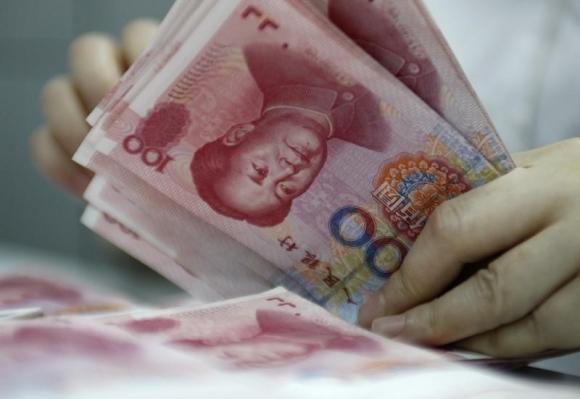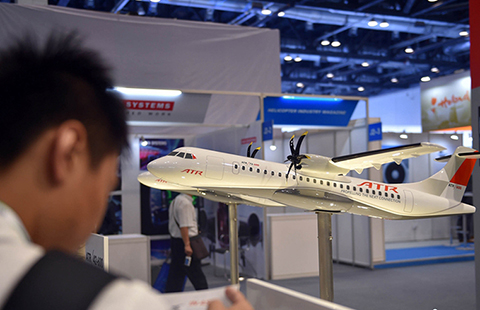Yuan unlikely to depreciate further
By Chen Jia (chinadaily.com.cn) Updated: 2015-09-17 17:46
 |
|
An employee counts yuan banknotes at a bank in Huaibei, Anhui province June 22, 2010.[Photo/Agencies] |
"There is no foundation for further depreciation of the currency, as the balance of payments remained in great surplus and the around 7 percent economic growth rate is remarkable in the world," said Wang Yungui, an official at the State Administration of Foreign Exchange.
Wang's remarks came at a news conference hours before the US Fed's meeting on Thursday. Any rate hike at the meeting would be the first one in more than nine years.
Expectation of a US rate hike and the yuan's recent depreciation had caused capital outflows in July and August as reflected by the drop in funds outstanding for foreign exchange and foreign exchange reserves.
The yuan's reference rate against the US dollar rose by 0.07 percent to 6.3670 on Thursday. The onshore spot rate is allowed to diverge from the fixing by a maximum 2 percent.
The SAFE showed that in August, net selling in foreign exchange by Chinese banks increased to $43.5 billion, up from $43.4 billion in July. It showed a net buying of $2.1 billion in June, indicating greater capital outflow pressure since the summer.
"There were fluctuations of cross-border capital flows, but that was normal," said Wang. "There was no sign of massive capital outflows from China."
The SAFE denied taking extra measures to ban buying and selling of foreign exchange in order to control capital flows.
"What we did was like security checks at the airport. We tightened data monitoring on cross-border capital flows and required some companies to explain their sharp growth of foreign exchange trade," said Wang.
He also assured that the government will continue to improve reforms to further open up the country's capital market, including a modification of the existing foreign exchange management regulations.
Last month, China's foreign exchange reserves dropped sharply to $3.56 trillion, down by $94 billion, the largest-ever monthly drop, suggesting the central bank's surprise reform of the yuan's exchange rate regime had triggered substantial capital outflows, economists said.
Mark Haefele, global chief investment officer at UBS AG, said on Tuesday that the market is currently pricing in only a 28 percent probability that the Fed will hike rates on Thursday.
"As such, we should expect that, in the very near term, a Fed decision to hike rates would lead to a re-pricing in the most sensitive assets, such as emerging market equities and currencies, higher yielding stocks, and the safest bonds. But, equally, a decision to remain on hold could lead to relief in these segments."
- Sinomach links with GE in clean-energy initiative
- Tencent eyeing 'reel' glory
- Top 10 M&A deals between China and US in 2015
- China dismisses worries about capital outflow
- Premier sends clear message on China's sustainable development
- Chinese HNA group in talks to buy Spanish soccer team
- Chinese-made cruise ship to weigh anchor in near future
- Yuan unlikely to depreciate further

















